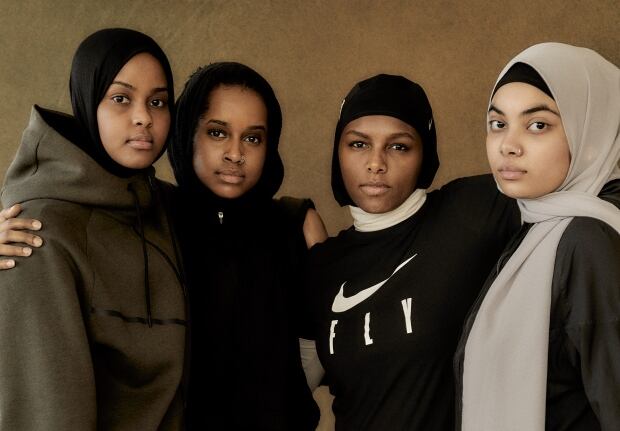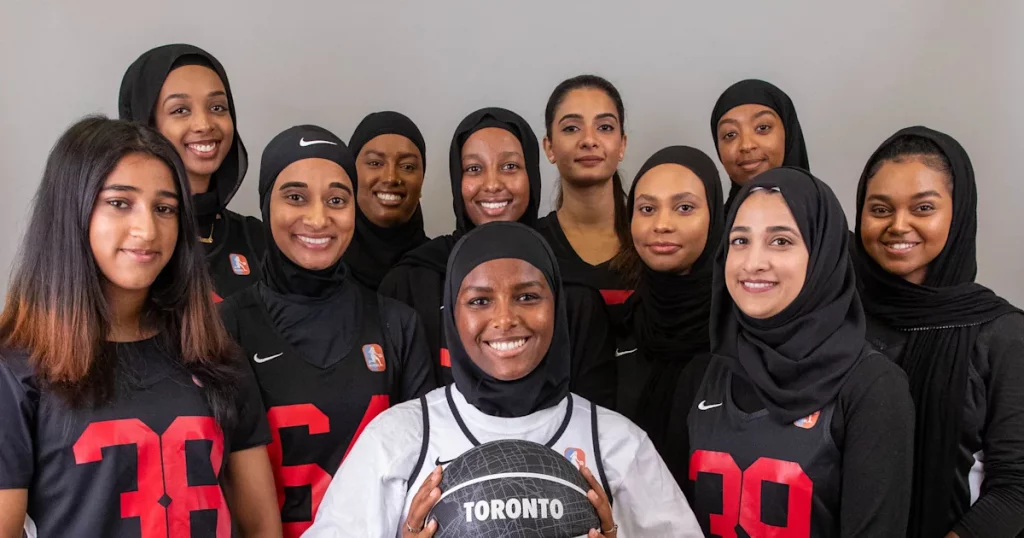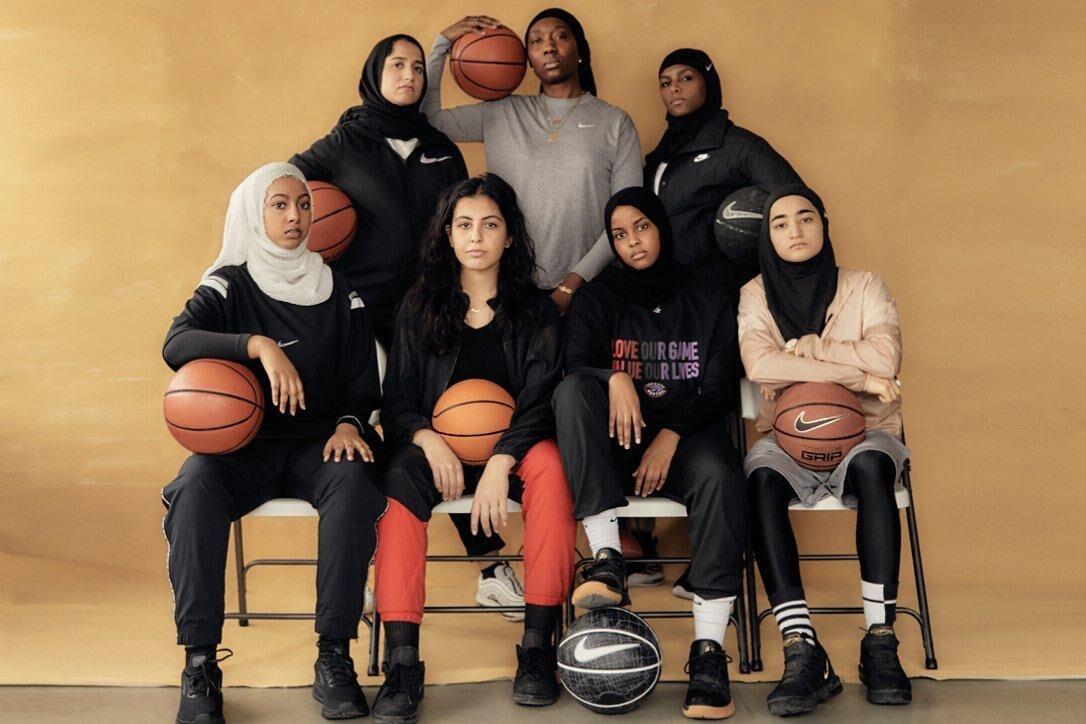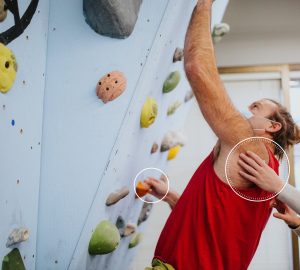In the area of sport, inclusivity stands as a paramount virtue that not only fosters diversity but also promotes equality and empowerment. Particularly in the realm of female Muslim athletes, where the call for safe spaces has gained significant momentum. As the world embraces the richness of cultural diversity, it is now more important than ever to address the unique challenges faced by Muslim women in sports and to advocate for an environment that respects their religious beliefs and cultural practices. Let’s talk about the importance of creating safe spaces for female Muslim athletes and explore strategies to ensure their full participation and representation in the sport they choose to play.
The Significance of Safe Spaces:
- Upholding Religious Practices: Creating safe spaces for female Muslim athletes is essential for respecting their religious obligations, such as modest dress codes and prayer times. By accommodating these practices, sports communities can foster an environment where Muslim athletes can freely express their faith without compromise.
- Encouraging Participation: Safe spaces cultivate a sense of inclusivity, encouraging more female Muslim athletes to actively participate in various sports. When provided with an environment that values their cultural identities and respects their values, Muslim women are more likely to engage in sports, thereby promoting diversity and breaking down barriers.
- Fostering Empowerment: Inclusive sporting environments empower female Muslim athletes by instilling a sense of belonging and confidence. By acknowledging their unique needs and providing necessary accommodations, sports communities can contribute to the empowerment of Muslim women, promoting their physical and mental well-being.
- Promoting Cultural Understanding: Creating safe spaces for female Muslim athletes facilitates a platform for cultural exchange and understanding. By embracing diversity, sports communities can bridge cultural gaps, fostering mutual respect and appreciation for the traditions and customs of different communities
An Athlete’s Perspective
Fitriya Mohamed’s story about her basketball journey reads like a Hollywood blockbuster. At the age of 10, she set foot in Toronto, leaving Ethiopia behind, and stepped into a new world of education. Initially observing her peers play on the sidelines during gym class, Fitriya’s reluctance was swiftly overridden by her teacher’s encouragement to participate. With laughter, Fitriya reminisces about her transition from the bench to the court, where she was introduced to the realm of sports, igniting a lifelong passion that transformed her future.

While the landscape for female athletes was evolving, Fitriya embraced the changing tides. Encouraged by her high school coaches, including the unwavering support of Greg Brohman, she fearlessly pursued various sports, from basketball to soccer and badminton. With her dedication and commitment, she earned the prestigious title of her school’s Female Athlete of the Year upon graduation.
However, her journey wasn’t without its challenges. Despite her growing love for the game, Fitriya noticed a stark contrast between her own diverse upbringing and the homogeneity within the sports community. Standing as a minority female Muslim athlete, she often found herself as the lone representative of her background during intramural sports activities. Determined to bridge this gap, Fitriya resolved to transform the discrepancy into an opportunity, fueled by her unwavering dedication to sports.
Inspired by the resilience of Muslim women athletes globally, including the iconic Bilqis Abdul-Qaadir, Fitriya embarked on a mission to establish a sports league dedicated to Muslim women. Fueled by her belief that financial constraints should not hinder passion, Fitriya’s non-profit venture provided an inclusive space for women to excel without burdensome financial worries.
Despite challenges posed by the pandemic, Fitriya’s Muslim Women’s Summer Basketball League has emerged as a beacon of unity and empowerment for Muslim women in Toronto and its surroundings. Her aspirations stretch far and wide, aiming for global representation and recognition for Muslim women in sports. With a master’s in sports management underway and collaborations with like-minded organizations, Fitriya’s vision of inclusivity and representation in sports is steadily coming to fruition.
In Fitriya’s own words, “the journey is about securing a space where diversity thrives”, and her tireless efforts have sparked a vital conversation about inclusivity, representation, and empowerment. As she continues to trailblaze, her story resonates as a testament to the power of resilience, determination, and the unwavering pursuit of one’s dreams.
Effective Strategies for Establishing Safe Spaces:
- Education and Awareness: Conducting educational programs and workshops within sports communities to raise awareness about the cultural and religious practices of Muslim athletes can promote understanding and empathy, fostering an environment of respect and inclusivity.
- Tailored Dress Codes: Implementing flexible dress codes that accommodate modesty requirements, such as hijabs and full-body attire, can ensure that female Muslim athletes can participate in sports without compromising their religious beliefs.
- Prayer Accommodations: Providing designated spaces for prayer within sports facilities enables Muslim athletes to fulfill their religious obligations without constraints, fostering an environment that respects their faith and practices.
- Diverse Representation: Promoting diverse representation in coaching staff and sports management can create a supportive and understanding environment for female Muslim athletes, fostering a sense of belonging and inclusivity.

Conclusion:
By prioritizing inclusivity and fostering an environment that respects the cultural and religious identities of female Muslim athletes, sports communities can pave the way for a more equitable and diverse sporting landscape. Creating safe spaces not only empowers these athletes but also enriches the global sports community by embracing the richness of cultural diversity and promoting mutual respect and understanding. Let’s continue to champion inclusivity and advocate for safe spaces that celebrate the contributions of female Muslim athletes in the world of sports.









